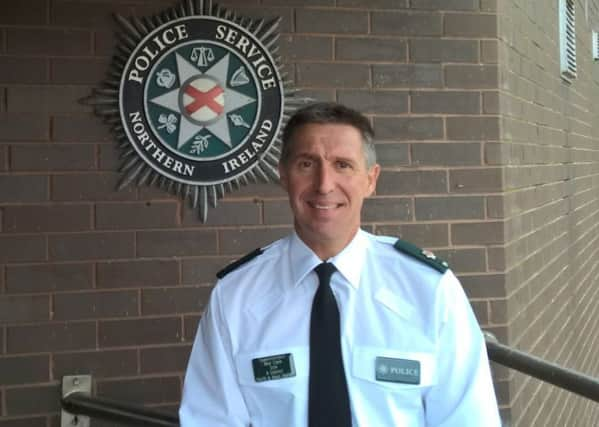‘Policing changes will provide better level of service’


From September 14, the old ‘response teams’ will disappear with the creation of two new Neighbourhood Policing Teams - one based in Antrim and the other in Newtownabbey.
Superintendent Muir Clark, the man in charge of Antrim and Newtownabbey District Command Unit, told the Times that the changes are the most significant in terms of how the police do business since the Patten reforms.
Advertisement
Hide AdAdvertisement
Hide AdBudget restraints have led to the restructuring, with the Superintendent stating that the current system of Neighbourhood Teams - four in Newtownabbey - was no longer sustainable.
The changes will see the creation of Local Policing Teams (LPT), based in both Antrim and Newtownabbey, which will provide a 24/7 service in both areas.
The Superintendent said: “We decided to make sure we properly fulfilled our obligations; we would change the way we do business.”
The Local Policing Teams will be on duty 24/7, and because of the way they are resourced, each member of the LPT will ‘own’ a District Electoral Area.
Advertisement
Hide AdAdvertisement
Hide AdMr Clark added: “The additional officers will go and work in the DEA on the issues and problems that are effecting the people in those areas.
“I am not losing staff to somewhere else, I am redistributing staff that I have in a way that I feel will provide a better level of service.”
Supt Clark, former Head of Road Policing, said the PSNI needs to look at “a sustainable model going forward.”
“I really see this returning to the real routes of policing with the community.
Advertisement
Hide AdAdvertisement
Hide Ad“I honesty believe that this will allow us to build better relationships in Antrim and Newtownabbey and deliver a more personal service to people who are not only victims of crime but those being affected by different issues such as anti-social behaviour,” he added.